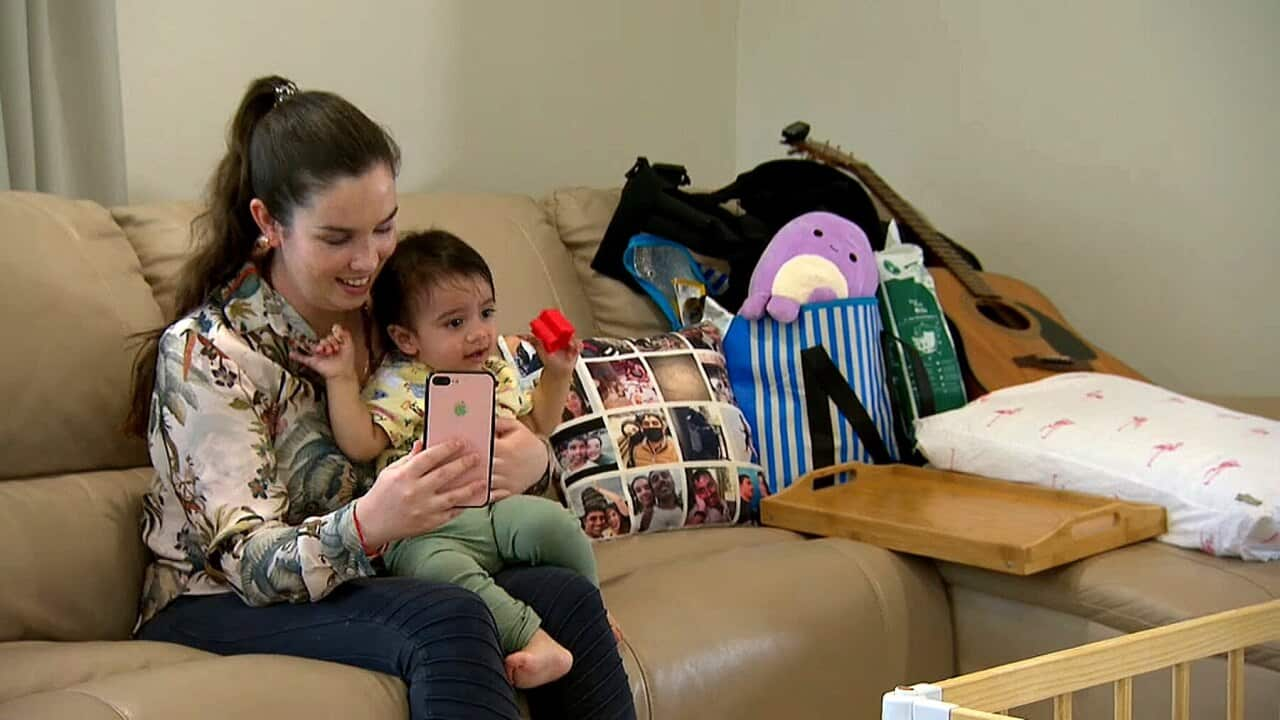Australians wishing to sponsor their partner to remain in the country will be forced to undergo a character test and have the results shared within the relationship before a visa application can be made.
The government says the new changes will protect migrants from domestic and family violence.
Acting Immigration Minister Alan Tudge revealed further details of the changes, , on Wednesday morning, including that any adverse findings from the sponsor’s character check would be shared with their partner so they can “make an informed decision” about whether to proceed with an expensive visa application.
The results would include any information that suggests a potential threat of future violence, including past convictions and charges, Mr Tudge said.
Immigration officials, however, would still have discretion over whether a visa application can proceed.
While supporting the sharing of information between a couple, domestic and family violence service providers have warned the changes could actually leave women worse-off by reducing their options to remain in the country.
Michal Morris, the chief executive of InTouch - a domestic violence organisation specialising in supporting migrants - told SBS News the changes may lead women to opt-out of reporting domestic violence to police due to fears their partner will be unable to sponsor them in the future.
She also noted that many people may already be married or have children by the time they apply for a partner visa, meaning it would be difficult for women to leave the relationship, even if the check produces red flags.
“[The change] reduces her options in Australia, because she won’t have an option to get to stay here,” Ms Morris said.
“And if she’s been living here for a number of years, and has a working visa and children, without that sponsorship element of the relationship, one of her pathways into Australia … has been taken away."
People on provisional partner visas are currently able to continue with their permanent visa application if they are able to demonstrate that they have been the victim of violence, even if the relationship comes to an end.
This family visa provision will continue to be available for people on provisional partner visas under the new rules.
Over the past five years, 2,450 partner visas have been granted following family violence claims.
"We need to be a lot more holistic in how we view each woman's circumstances and their relationship," Ms Morris said.
Temporary migrants have been at increased risk of violence during the coronavirus pandemic, with more than .
Monique Dam, advocacy and prevention manager at DVNSW, the peak body representing family violence support providers in New South Wales, said it was the government's responsibility to ensure all victims of violence can access income, housing, and social support regardless of visa status.
"Women and LGBTIQ+ on temporary visas experience sexual, domestic, and family violence on many types of visas, including student visas, work, partner, family, carer, visitor and bridging visas," she said.
"No one should be at the risk of being killed, or to be provided with no other option than to return to a violent perpetrator because they have nowhere else to go... The government should expand the family violence provisions to be available to all people on temporary visas."
Ms Morris has instead called for a new visa class to be created for temporary migrants who are forced to leave a relationship due to violence, affording them the "opportunity to stay [in Australia], working rights, medicare rights, and housing rights" for two to five years so they can determine next steps.
"Reducing her opportunities to stay in the country is not a solution to the problem, and it doesn't impact him as much as it would impact her," she said.
The character test is part of a , including the introduction of a , which the Department of Home Affairs estimates will save the government $4.9 million over four years.
The changes are set to be introduced from late 2021 and only apply to new applications.
Police checks are already part of the visa application process, but under the new rules, the sponsor character check will take place prior to the application.
Migrants who don’t speak English are at increased risk of domestic violence as they are less likely to have a support network in Australia or know how to seek assistance, he added.
“It doesn’t matter who you are, where you come from, whether you are here on a visa or have Australian citizenship – no one should be trapped in a violent relationship,” Mr Tudge said.
Mr Tudge said further details on how the character test would be implemented will be released over the coming months.
If you or someone you know is impacted by sexual assault, family or domestic violence, call 1800RESPECT on 1800 737 732 or visit . In an emergency, call 000.












